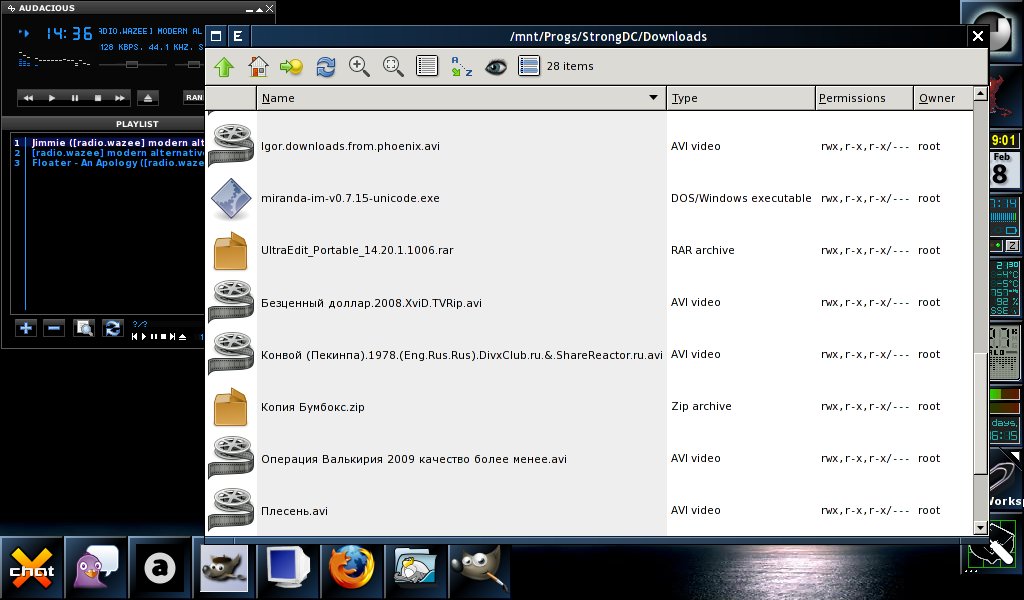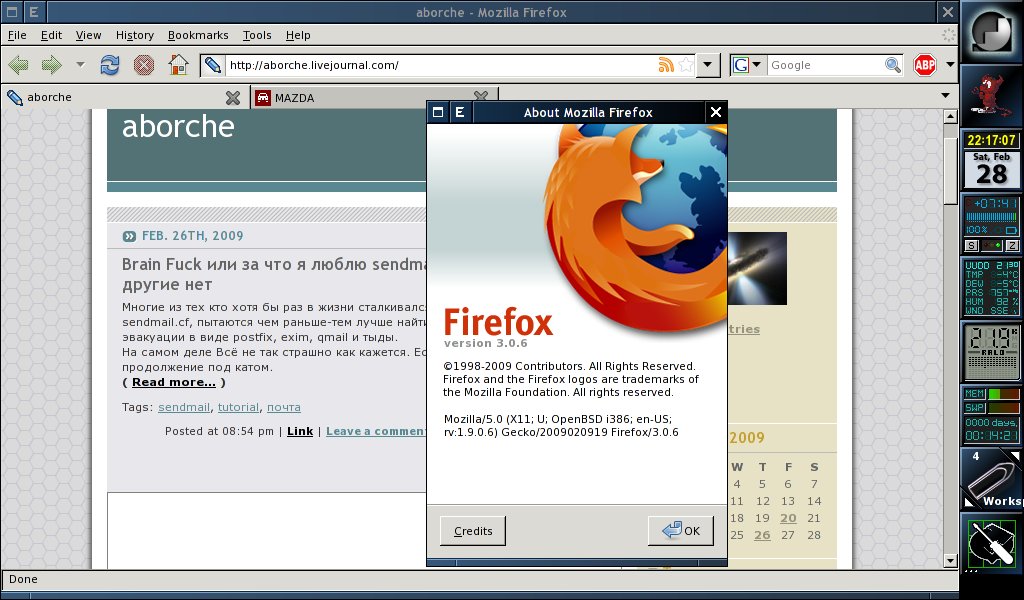Asus eeePC 1000H and OpenBSD
While scrolling through the Asus eeePC hubblog, I was surprised at the complete absence of non-Linux installations among the habrausers and decided to tell my story of the OpenBSD installation for eeePC. Having bought an eeePC 1000H with an 80GB disk and preinstalled Windows XP in August, I wanted some kind of variety in the possibilities provided by the laptop. Xandros didn’t succeed in anything, Ubuntu 8.04 started up with a lot of squeak and glitches, FreeBSD 7.0 started up without network and vive support, but OpenBSD started up right away and almost without problems (Attansic L1 support almost none where it was not, so this can not be considered a problem). But it got xorg, sound and wai, I really didn’t want more. After a couple of months, drm was repaired and hardware GL acceleration started.


- The smaller ports tree (compared to FreeBSD)
- Another system for enabling (activating) startup scripts and network interfaces
- Wifi settings technology different from FreeBSD and Linux (more convenient)
- Different principles of assembling world and xenocara (xorg ground under OpenBSD)
- Using pure cvs instead of cvsup (csup)



